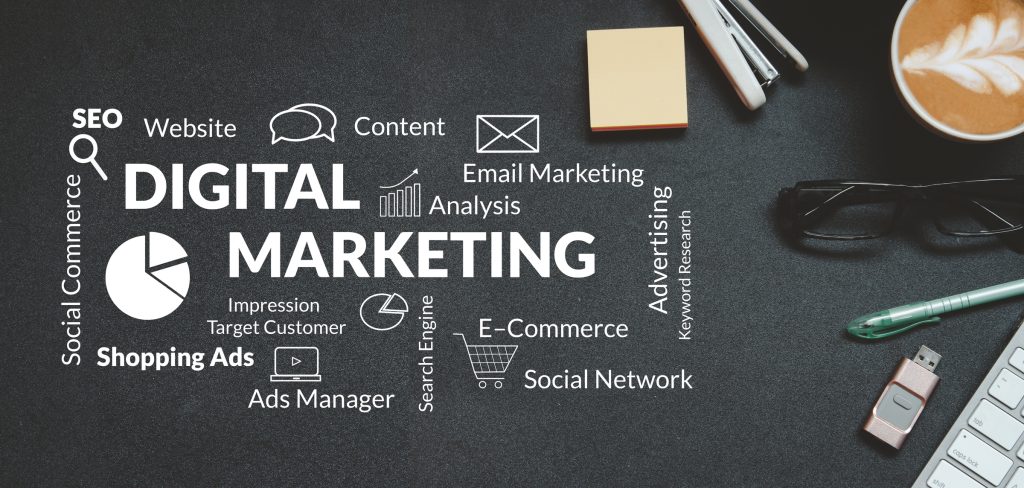Since your time is already in high demand, it is important to focus your marketing efforts where they can make the biggest impact — the digital space. While it may not be feasible to try to compete in every aspect of the digital landscape, efforts should be focused on a few key areas where a small business can still gain an advantage over its larger competitors. In my experience running a web design and digital marketing agency, these are the most important areas small business owners must prioritize.
Mobile Strategy
If your digital marketing strategy isn’t optimized for mobile platforms, then you are probably missing the mark with a good chunk of your customers. To stay competitive, your strategy should include the following, at the bare minimum:
• Responsive Website Design: First and foremost, your website should be designed so that it is fully functional on mobile devices, which means using a responsive design. As smartphones slowly but surely are becoming a primary access device for web browsing worldwide, it is important that you are offering a seamless user experience between both mobile and desktop users. Responsive web design and fast hosting are one of the best methods to achieve this.
• Geotargeting: Facebook offers the ability to serve targeted, hyperlocal mobile ads to your customer demographic. The best part of this service is that ad delivery is based on their location. Since consumers are consistently utilizing mobile devices, this offers a unique way to reach potential customers in specific geographic areas who otherwise might not have found their way to your website.
Search Engine Optimization (SEO)
Ranking well on search engines requires implementing excellent publishing and marketing information known as SEO. This effort has become more important, especially on the local level, in staying relevant online.
Many users only look at the first page of the search engine’s results when seeking answers, or they look to the featured snippet or knowledge panel of Google Search results. Those that rank near the top of search engine results pages (SERPs) have nothing to worry about, but those listed on the pages after often see a steep decrease in page visits.
With Google’s increased focus on quality, high-ranking search results, including websites that provide mobile users with location-specific results to their queries, small business owners should focus efforts on local SEO as well as standard SEO to gain an advantage.
Video Content
Did you know that the average amount of video content watched on YouTube globally is 3.25 billion hours each month? That is an incredible amount of video and should provide some insight as to why this content format should be a priority for your business. Creating engaging video content for platforms like YouTube, Facebook, Instagram and Snapchat can help you effectively reach customers while building brand awareness.
When creating videos, it’s important to consider how and where you will be posting them. For example, up until recently, it was widely accepted that videos should be shot horizontally. However, with the rising popularity of the “story” feature on platforms like Facebook and Instagram, vertically shot videos have become more the norm to fit these formats.
Influencer Marketing
Influencer marketing is on the rise in 2018. When done properly, it can positively impact the public’s perception of your business or products, inspire brand loyalty, foster organic conversations on social media and boost your sales.
Content is king when it comes to a successful influencer marketing campaign. Aspects to identify and create before launching a new campaign include the following.
• Platform Insights: Is your content in the right place? A common misconception is that you need to be everywhere, when the truth is that you simply need to be in the places your customers are. If your content performs poorly on certain platforms, then you should reevaluate whether or not to focus your efforts there.
• Social And Search Trends: In life, timing is everything, and that concept translates to your content as well. Even the best content, when posted at inopportune moments, is more likely to miss your target audience, which is why you should stay updated on both social and search trends to release content that people are looking for.
• Content Calendar: A common business mistake when it comes to content is to create and post on the fly without any sort of plan. This hit-or-miss style will inevitably produce hit-or-miss results, while a carefully crafted content calendar produces consistency. A calendar provides a visualization of your upcoming content strategy and helps create a consistent flow of content to better build your brand.
• Trustworthy Influencers: Influencer marketing is all about authenticity, which means allowing an influencer some level of freedom to create content that is genuine to them. In that regard, as a business owner, you need to have trustworthy people in this position who understand how to meld your goals into what they produce. It is critical to allow them freedom when creating content so it has validity and authenticity while still accomplishing your goals. That requires trust on your part.
A common problem among small business owners is a lack of understanding of whether their marketing efforts are effective. To avoid this, make sure you are gaining valuable insights by measuring key metrics with programs like Google Analytics. Then, learn to adjust your efforts accordingly to be effective. You may not have the time or resources to explore every digital marketing strategy, but at a minimum, make the time to place your digital marketing focus on these key areas to compete as a small business in the digital space.
____
by Ken Braun
Source: forbes.com








